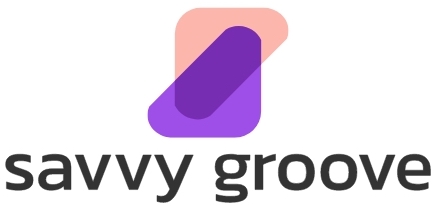Introduction to PPC Advertising: A Powerful Tool for Small Businesses
In today’s digital age, online advertising has become an essential component of any successful marketing strategy. Pay-per-click (PPC) advertising is a powerful tool that allows small businesses to reach their target audience effectively and efficiently. With PPC advertising, businesses can display their ads on search engine results pages, social media platforms, and other websites, paying only when a user clicks on their ad. This article will provide a guide to PPC advertising for small businesses, such as from understanding the basics to setting up your first campaign and maximizing return on investment (ROI).
Understanding the Basics: What is PPC Advertising and How Does it Work?
PPC advertising is a form of online advertising where advertisers pay a fee each time their ad is clicked. It is an auction-based system, where advertisers bid on keywords relevant to their business. When a user searches for a keyword, the search engine displays ads based on the highest bidder and relevance to the search query. The advertiser is only charged when a user clicks on their ad, hence the name “pay-per-click.”
Benefits of PPC Advertising for Small Businesses: Why Should You Consider it?
PPC advertising offers numerous benefits for small businesses. Firstly, it provides instant visibility and exposure to a targeted audience. Unlike traditional advertising methods, PPC allows businesses to reach potential customers at the exact moment they are searching for products or services. This targeted approach increases the likelihood of conversions and sales.
Secondly, PPC advertising offers complete control over the budget and spending. Small businesses can set a daily or monthly budget, ensuring they do not overspend on advertising. Additionally, PPC platforms provide detailed analytics and reporting, allowing businesses to track the performance of their campaigns and make data-driven decisions.
Setting Up Your First PPC Campaign: Step-by-Step Guide for Small Business Owners
Setting up a PPC campaign may seem daunting at first, but with the right approach, it can be a straightforward process. The first step is to define your campaign goals and target audience. Understanding your target audience’s demographics, interests, and search behavior will help you create compelling ads that resonate with them.
Next, conduct keyword research to identify relevant keywords for your business. Tools like Google Keyword Planner can help you find keywords with high search volume and low competition. Once you have your keywords, create compelling ad copy that highlights your unique selling points and encourages users to click on your ad.
After creating your ads, it’s time to set up your campaign on the PPC platform of your choice, such as Google Ads or Facebook Ads. Define your budget, targeting options, and bidding strategy. It’s crucial to continuously monitor and optimize your campaign by analyzing the performance metrics and making necessary adjustments to improve results.
Maximizing ROI: Tips and Strategies to Make the Most of Your PPC Budget
To maximize return on investment (ROI) from your PPC campaigns, it’s essential to implement effective strategies. Firstly, regularly review and refine your keyword list. Identify high-performing keywords and eliminate underperforming ones. This will help you allocate your budget more efficiently and focus on keywords that drive conversions.
Secondly, optimize your landing pages to ensure a seamless user experience. A well-designed landing page that aligns with your ad copy and offers relevant information will increase the chances of conversions. Test different landing page variations to identify the most effective one.
Furthermore, leverage ad extensions to enhance your ads and provide additional information to users. Ad extensions like call extensions, site links, and location extensions can improve click-through rates and drive more qualified traffic to your website.
Common Mistakes to Avoid: Pitfalls to Watch Out for in PPC Advertising for Small Businesses
While PPC advertising offers immense potential for small businesses, there are common mistakes that should be avoided. One common mistake is not conducting thorough keyword research. Choosing irrelevant or highly competitive keywords can result in wasted ad spend and poor campaign performance. Take the time to research and select keywords that align with your business goals.
Another mistake is neglecting to track and analyze campaign performance. Without proper tracking, it’s impossible to determine the effectiveness of your ads and make data-driven decisions. Use conversion tracking and analytics tools to gain insights into user behavior and optimize your campaigns accordingly.
Lastly, failing to optimize landing pages can lead to high bounce rates and low conversion rates. Ensure that your landing pages are mobile-friendly, load quickly, and provide a clear call-to-action. A well-optimized landing page can significantly improve the success of your PPC campaigns.
PPC advertising is a powerful tool for small businesses to reach their target audience and drive conversions. By understanding the basics, setting up effective campaigns, and implementing strategies to maximize ROI, small businesses can leverage PPC advertising to grow their online presence and achieve their marketing goals. Avoiding common mistakes and continuously optimizing campaigns will ensure long-term success in the competitive digital landscape.
